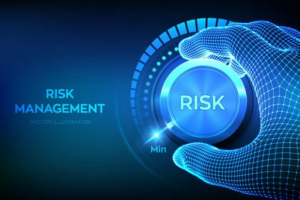Responsibility and Shared Vision

Artificial intelligence promises to help solve many of humanity’s greatest challenges and push forward rapid progress in fields ranging from healthcare to transportation. However, advanced AI also brings risks and unintended consequences that must be grappled with to ensure its responsible development and use. Issues including data privacy, bias, job disruption and long-term existential risks pose new challenges for policymakers and researchers in ensuring the safe, ethical and equitable progress of AI.
With its ability to perform human-like tasks in many domains, AI raises policy questions around data privacy we must address proactively. The collection and use of massive amounts of data to train AI systems requires oversight to prevent abuse and protect citizens. Regulations should aim to build trust through transparency and prevent harmful misuse of data while still enabling innovation. International guidelines can help set shared standards, but we must think locally and consider all communities to achieve equity.
Machine learning algorithms can reflect and amplify the biases of their training data, raising concerns about unfairness or lack of inclusiveness that must be addressed to maximize AI’s benefits. Techniques like algorithmic auditing, disaggregated data and value sensitive design should be incorporated to reduce bias, and diverse, interdisciplinary teams should shape AI’s progress. But addressing the issue of bias ultimately requires openness, partnership and a shared belief in human dignity.
The use of AI may significantly transform industries and jobs over time through automation, with major disruptions possible within the next decade. Policymakers must think proactively in implementing programs to help workers adapt, but researchers also share responsibility in considering AI’s impact on jobs and taking steps to prioritize human judgment and oversight. A future with less available work could require alternative economic models to ensure stability and equitable access to basic necessities. With foresight and cooperation, we can navigate disruption judiciously.
Advanced AI, especially the theoretical possibility of general artificial intelligence or “superintelligence”, also poses longer-term challenges that require proactive consideration. There are concerns about loss of human control and judgment as machines become more autonomous and capable. Regulations and values alignment techniques should be prioritized to help ensure AI systems remain grounded and beneficial as they grow more powerful. However, researchers must also avoid hype and consider AI’s progress pragmatically to build trust through responsible innovation. International guidelines can set important ground rules, but progress ultimately depends on good faith and shared humanity.
While AI promises to help solve important challenges, it also poses real risks and uncertainties that make openness, partnership and moral leadership especially important. The future remains ours to shape if we stand together guided not by fear but by hopes of progress, justice and human dignity now ripening into shared vision – lives uplifted, empowered through equitable access to benefits and basic security in an era of change. Our work begins today with open minds and shared humanity as moral compass pointing the way ahead to a common destiny: a world made whole, all lives set free. The choice and challenge is partnership in charting this new course with care, building a shared tomorrow through trust and moral vision as progress lifts all as one. Though dangers wait untold, the future calls us to responsibility and shared humanity. The rest remains choice: divide and fail, or stand as partners now to walk this path made new – for justice, lives flourishing in security and technology with purpose – shared destiny within our hands.






